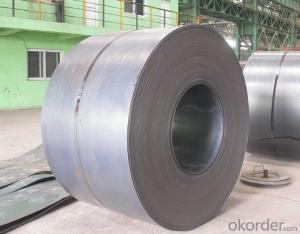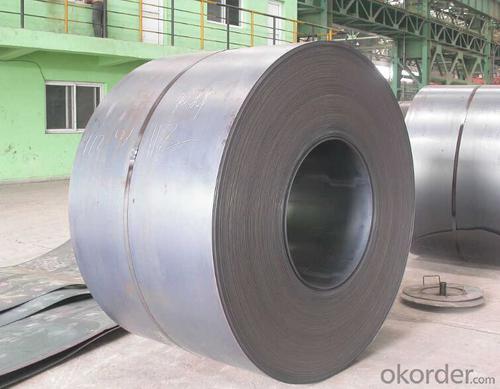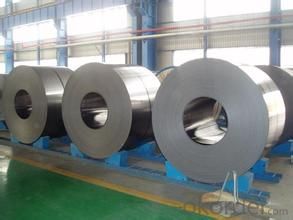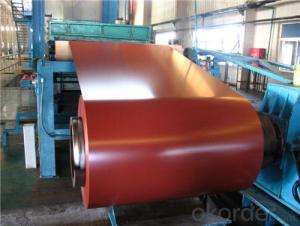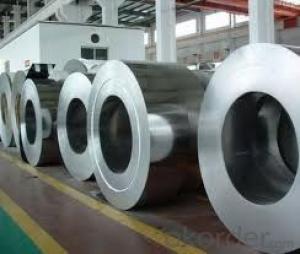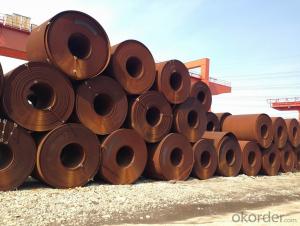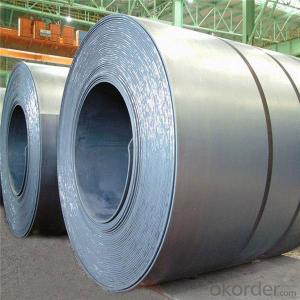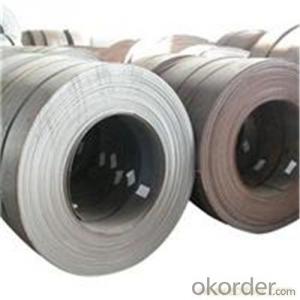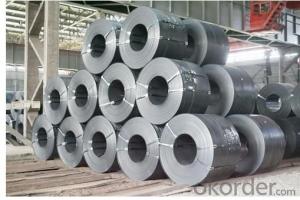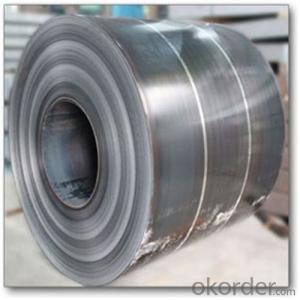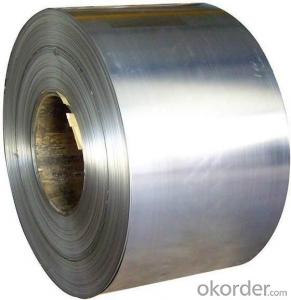Carbon Hot Rolled Steel Coils
- Loading Port:
- China Main Port
- Payment Terms:
- TT or LC
- Min Order Qty:
- -
- Supply Capability:
- -
OKorder Service Pledge
OKorder Financial Service
You Might Also Like
Quick Details
Standard: | ASTM,GB,JIS | Grade: | ASTM A36,Q235,SS400 | Thickness: | 3-15mm |
Place of Origin: | Shanxi/Hebei China (Mainland) | Model Number: | carbon steel coil | ||
Type: | Steel Coil | Technique: | Hot Rolled | Surface Treatment: | passivation,oiled, |
Application: | normally | Special Use: | High-strength Steel Plate | Width: | 1250-2000mm |
Length: | as required |
Packaging & Delivery
Packaging Detail: | Standard waterproof packing |
Delivery Detail: | Within 15-30 days after receiving your L/C |
Specifications
1.Standard:GB,ASTM,JIS
2.Grade:ASTM A36,Q235,SS400
3.Thickness:3-15mm
4.Width:1250-2000mm
5.Packaging: Standard waterpoof packing or as required.
6.Payment Terms: L/C or T/T
7.Delivery: by shipment
FAQ of Steel Coil:
①How is the quality of your products?
Our products are manufactured strictly according to national and internaional standard, and we take a test
on every coil before delivered out.
②How about price?
Yes, we are factory and be able to give you lowest price below market one, and we have a policy that “ for saving time and absolutely honest business attitude, we quote as lowest as possible for any customer, and discount can be given according to quantity.
③Why should you chose us?
Chose happens because of quality, then price, We can give you both.Additionally, we can also offer professional products inquiry, products knowledge train(for agents), smooth goods delivery, exellent customer solution proposals.Our service formula: good quality+good price+good service=customer’s trust
SGS test is available, customer inspection before shipping is welcome, third party inspection is no problem.
Steel Coil Images:
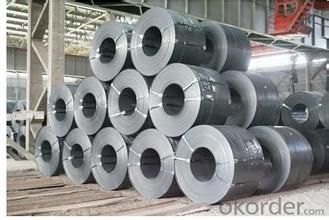
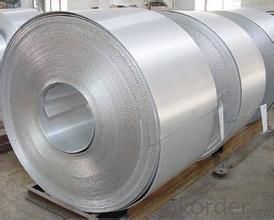
- Q: I understand that damascus sword steel was made by folding the strip of steele double , reheating, hammering, folding again and so forth hundreds of times. Was this the same or very nearly the same techmique the japs used making the sword blades the samari swords?(forgive the misspelling)
- Damascus: A folding technique where the steel is folded over itself many (generally up to sixteen) times, leading to hundreds or even thousands of layers (one fold = 2 layers, two folds = 4 layers, three folds = 8 layers, 16, 32, 64, 128, 256, 512, 1024, 2048, 4096, etc.). More folds than sixteen are pointless, as the layers would become thinner than one molecule - which is impossible. This method was developed to removed impurities from the steel (it also removes carbon, which is bad, but can be compensated for to some degree), but modern steel is so pure that Damascus folding is no longer needed. It is now used for aesthetic reasons; Damascus steel looks really good; you can see the layers in the blade. San Mai: Translates to three layers. Layers of softer, lower carbon steel (or iron) is forge welded to layers of harder, higher carbon steel. The lower carbon steel forms the core (and sometimes the sides and/or back), and the higher carbon steel forms the edge. The hard edge will hold its sharpness, the softer core provides shock absorption; making the sword harder to break. Unlike Damascus, San Mai is still very practical. San Mai folds should be invisible; if you can see a San Mai fold the forging was flawed and the blade should be discarded - you'll have to trust your seller that the blade is San Mai - you can't tell by looking. San Mai can be revealed by etching the blade with acid, such as lemon juice, but I don't recommend trying this unless you know what you're doing; you can permanently stain the blade. San Mai swords are more durable (and more expensive) than simple blades. They are more durable (and usually less expensive) than Damascus blades. A blade can be either San Mai or Damascus, or it can be both; Damascus steel which is then San Mai folded. Very cool, looks good and lasts long.
- Q: I want a good quality, big, strong, steel knife but I want it to be a good price, say around $30 or less, $60 at the most. please add links.
- Sorry, probably aint gonna happen in that $ range. How big of a blade will effect the steel selection. For instance I have one I forged from 52100, a most excellent steel better suited for 5-6 blades. For larger blades either 5160 or L-6 can make an indestructable blade. For 5 and under D-2 is about as fine a steel as you can get. No blade made from these will come cheap, L-6 is only available from custom makers. Save up your money, expect to pay 100 - 200 for a well made blade. You pay cheap prices you get cheap workmanship.
- Q: How are steel coils used in the production of metal partitions?
- Steel coils are an essential component in the production of metal partitions. These coils are typically made from high-quality steel and serve as the raw material for manufacturing the partitions. Firstly, the steel coils undergo a process called slitting, where they are cut into narrower strips of the desired width. This enables manufacturers to customize the size of the metal partitions according to specific project requirements. After slitting, the steel strips are then fed into a roll forming machine. This machine gradually shapes the strips into the desired profile for the metal partitions. The roll forming process involves passing the steel strips through a series of rollers, which progressively bend and form the metal into the desired shape and dimensions. Once the metal has been formed into the desired shape, it is cut into appropriate lengths to create individual partitions. These partitions are then further processed, such as through welding or spot welding, to join different components together and enhance their structural integrity. Steel coils are preferred for metal partition production due to their strength, durability, and versatility. The use of steel ensures that the partitions can withstand heavy loads, resist corrosion, and provide long-lasting performance. Additionally, steel coils offer a high degree of design flexibility, allowing for the creation of various partition styles, such as solid panels, perforated screens, or mesh partitions. Overall, steel coils play a crucial role in the production of metal partitions by providing the necessary raw material, strength, and customization options required for these versatile architectural elements.
- Q: What are the common defects in steel coil surface finishes?
- Common defects in steel coil surface finishes include scratches, pits, roll marks, stains, and unevenness. These defects can be caused by various factors such as improper handling, processing issues, or equipment malfunction. These surface defects affect the aesthetics and quality of the steel coil, making it unsuitable for certain applications or requiring additional processing to rectify the defects.
- Q: What is the minimum temperature that steel coils can withstand?
- The minimum temperature that steel coils can typically withstand without undergoing significant changes in their physical properties is around -40 degrees Celsius (-40 degrees Fahrenheit). However, this can vary depending on the specific type and grade of steel used in the coils.
- Q: Can steel coils be customized?
- Yes, steel coils can be customized to meet specific size, shape, and material requirements of various industries. Customization can include altering the dimensions, thickness, or even the coating of the steel coils to suit specific applications.
- Q: How are steel coils used in the manufacturing of industrial valves?
- Steel coils are used in the manufacturing of industrial valves as they are processed and formed into various valve components, such as bodies, flanges, and stems. These coils are cut, shaped, and welded to create the necessary parts that make up the valve, ensuring its strength, durability, and functionality in industrial applications.
- Q: How are steel coils transported internationally?
- Steel coils are typically transported internationally using various modes of transportation such as ships, rail, and trucks. Ships are commonly used for long-distance transportation, where steel coils are loaded onto specialized vessels equipped with cranes for efficient loading and unloading. Rail and trucks are often used for shorter distances or for transporting steel coils from the port to the final destination. Specialized equipment such as flatbed trailers or intermodal containers are utilized to ensure the safe and secure transport of steel coils.
- Q: Can steel coils be coated with impact-resistant materials?
- Yes, steel coils can be coated with impact-resistant materials.
- Q: So I want to get my 3+ wood shafted with a dynamic gold shaft because i need a stiffer shaft but dont want to spend much on it.I've never swung a steel shafted wood, but I hear that it is more consistent that graphite....Plus, since the cost of steel is only $15 compared to the $65 graphite, not to mention installation charges.So yeah...... How good is steel for fairway woods?BTW, my swing speed is about 95 but i can amp it up to 110 (with control, that is)
- If your club has a graphite shaft in it and you want to switch to steel an option is to get a dynamic gold lite shaft. The other option is to make sure you trim the shaft to the 42 length with the gold shaft to lighten up the swing weight. You can get away with about 42 3/4 with the lite shaft. I have found steel to be very consistent in my fairway woods and don't think I'll ever go back to graphite. I have mine cut to 42 1/2 for the 3 wood and 41 1/2 for the 5 wood with Dynamic gold s300 and they're fine.
Send your message to us
Carbon Hot Rolled Steel Coils
- Loading Port:
- China Main Port
- Payment Terms:
- TT or LC
- Min Order Qty:
- -
- Supply Capability:
- -
OKorder Service Pledge
OKorder Financial Service
Similar products
Hot products
Hot Searches
Related keywords
